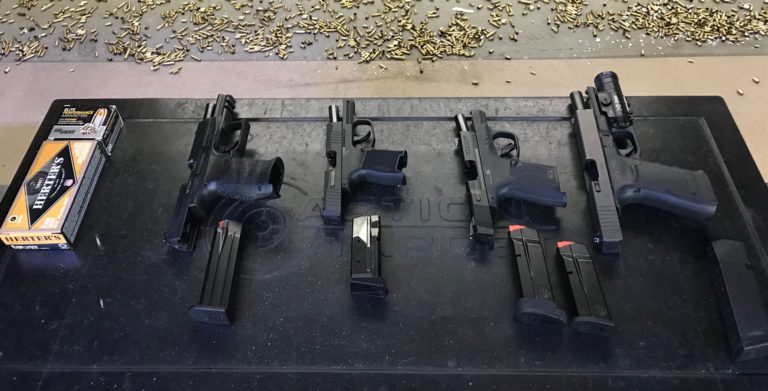Two developments this month saw the trend of diverging strategies over preemption reach new ground.
As the debate over the local control of gun laws has grown more prominent in recent years, a partisan split is emerging in how different states have responded. Blue states have taken steps to weaken, or even repeal, state control of gun laws. Red states have started to introduce laws strengthening state control over matters of gun regulation.
Colorado is an example of the first approach. In the 2021 legislative session, it became the first state with a firearm preemption statute to repeal it outright. The replacement law now provides local and municipal governments the ability to pass any firearm restriction, provided it is not less restrictive than state law. Since then, the city of Denver has been able to pass a “ghost gun” ban, but other cities have been hesitant to take full advantage of their new discretion. That is until now.
Earlier this month, the city council in Boulder, Colorado began working on a sweeping package of gun-control ordinances that go far beyond what the state, or any other Colorado city, have enacted thus far.
The proposals being considered include:
- reinstatement of the city’s assault weapons ban, with an added prohibition on “trigger activators.”
- reinstatement of the city’s ban on magazines that can hold more than ten rounds of ammunition.
- a complete ban on open carry and licensed concealed carry in “sensitive areas.”
- a mandatory 10-day waiting period for gun sales.
- a ban on unserialized firearms.
- a mandate that all licensed gun and ammunition dealers post a sign on the premises stating, “WARNING: Access to a firearm in the home significantly increases the risk of suicide, death during domestic violence disputes and the unintentional death of children, household members or others.”
While the proposals have not yet been enacted, they indicate the policies liberal cities might be inclined to pursue when no longer encumbered by a state preemption law. They serve as an example other blue states may follow.
The other approach, taken by states with more gun-friendly legislative majorities, has been to introduce legislation bolstering preemption laws with civil penalties for local governments who violate the law by passing restrictive local ordinances. In other words, states are beginning to push for preemption statutes with teeth, mainly in response to localities’ attempts to flout state preemption. The state legislature in Utah officially passed such a bill on Tuesday.
Senate Bill 115 makes it explicit that the state legislature is the sole governing body in the state allowed to regulate firearms and ammunition. It also contains an enforcement section allowing any person “harmed” by a local gun law to sue the authority that passed it. The litigation could result in a court order declaring the ordinance void, a permanent injunction against the city to prevent enforcement of the law, and a civil award for damages plus legal fees.
Similar bills with preemption enforcement provisions have been considered in Pennsylvania and New Hampshire, though neither has passed into law. If Governor Spencer Cox (R.) of Utah signs SB 115 into law, it could provide an example for other red states to follow.
It just so happens that two states directly next to one another, with opposite party control, provide the latest example of the divergence taking place in state-level fights over gun control. But they will certainly not be the last. A bill to weaken state preemption by allowing localities to impose restrictions on gun carry is currently making its way through the Washington state senate, for example.
Given these trends, expect to see the bifurcation continue as more states continue to decide how much to tolerate local gun regulation.






Only Members can view comments. Become a member today to join the conversation.